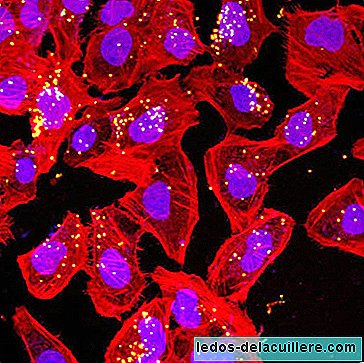
In recent weeks we are hearing often talk about pertussis vaccine in pregnancy, and it has been a while that the cases of this disease have increased and there has even been the case of the death of a baby due to her, even though her mother was vaccinated.
For this reason, the Ministry of Health, Social Services and Equality has just published on its website two dissemination documents, prepared in coordination with the Autonomous Communities and several medical associations, to inform the general population and health professionals about most important aspects of the strategy of pertussis vaccination in pregnant women.
They collaborate with the Spanish Association of Vacunology (AEV), the Spanish Association of Pediatrics (AEP), the Spanish Society of Gynecology and Obstetrics (SEGO) and the Federation of Midwifery Associations in Spain (FAME).
The characteristics of the disease, the reasons why vaccination is recommended and other preventive measures for the protection of the newborn are some of the issues that matter most to many pregnant women at this time and to which they respond in this interesting document that combine the message on this topic. Here we extract some of the questions and answers:
Why should pertussis be vaccinated in pregnancy? The purpose of vaccination against pertussis in pregnant women is to protect children against this disease in its first months of life. It is about double protection for the mother and the newborn. When administering the pertussis vaccine during the last stage of pregnancy, the defenses in the pregnant woman increase. These defenses (antibodies) pass through the placenta and protect the newborn until he receives the first dose of the vaccine against pertussis according to the vaccination schedule (period in which he is more vulnerable to complications of this disease) .
In which week of pregnancy is vaccination against pertussis indicated? It is recommended to vaccinate pregnant women between weeks 27 and 36 of pregnancy (preferably between weeks 28 and 32). It should be vaccinated in each new pregnancy, regardless of when the last dose of tetanus vaccine has been received and if it has been vaccinated in a previous pregnancy.
Why is vaccination recommended between weeks 27 and 36 of gestation? It has been proven that the greatest passage of defenses through the placenta takes place in the last trimester of pregnancy. Recent studies have shown that umbilical cord blood of newborns of mothers vaccinated against pertussis has a greater amount of defenses compared to newborns of unvaccinated mothers.
In which cases is this vaccine contraindicated? In the case of women allergic to any of the components of the vaccine or who have had a severe allergic reaction (anaphylactic), although this situation is very rare.
Is this vaccine safe? Yes, it is a vaccine that can not produce pertussis and is safe during pregnancy. Even so, vaccines, like any other drug, can have adverse effects, which are rare and are usually mild (discomfort in the area of the puncture) and in no case affect the health of the child.
Does the pregnant woman need to get vaccinated even if she already did it in childhood? Yes, because the protection conferred by the vaccine is limited in time. Therefore, revaccination during pregnancy is indicated in all cases, regardless of the time since the last dose.
Is it possible to get vaccinated against whooping cough and the flu on the same day? Yes, both vaccines can be administered at the same pregnancy follow-up visit at the health center, but each in a different arm. They can also be administered on different days without having to save any specific time interval.
When will the baby be vaccinated after birth? According to the childhood vaccination schedule, and to protect the baby as soon as possible, vaccination against pertussis is recommended at 2 months of age (or as close as possible to this date). The following doses are administered as prescribed in the official vaccination schedule, which your pediatrician and pediatric nurse will inform you in detail.
Other alternatives to protect the baby against whooping cough in addition to vaccination (which we already saw that it is not fully effective; it is curious that this point is not mentioned in the document), the symptoms of the disease ... complete this report with questions and answers about whooping cough vaccine in pregnant women, hopefully it helps to spread the importance of immunization.












